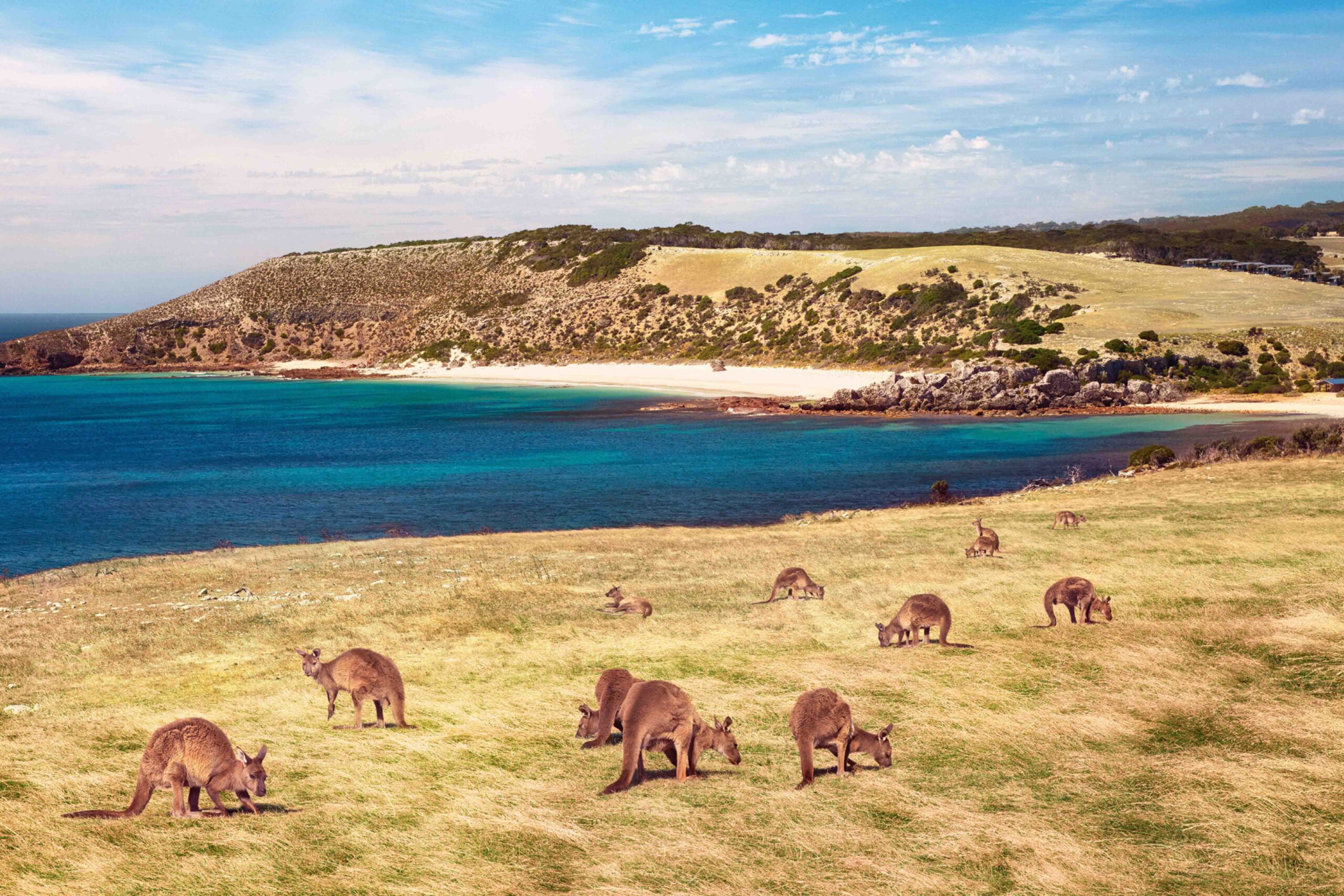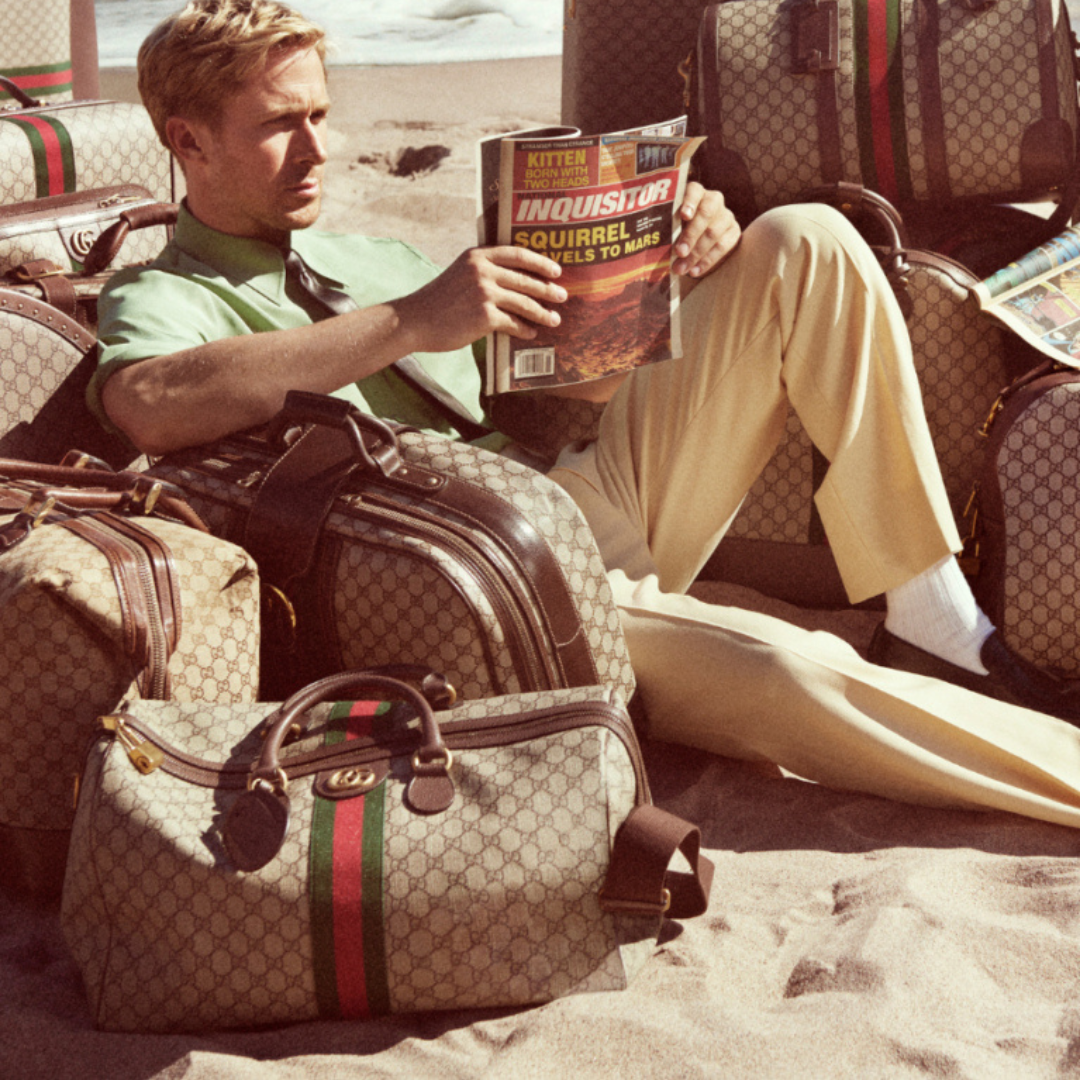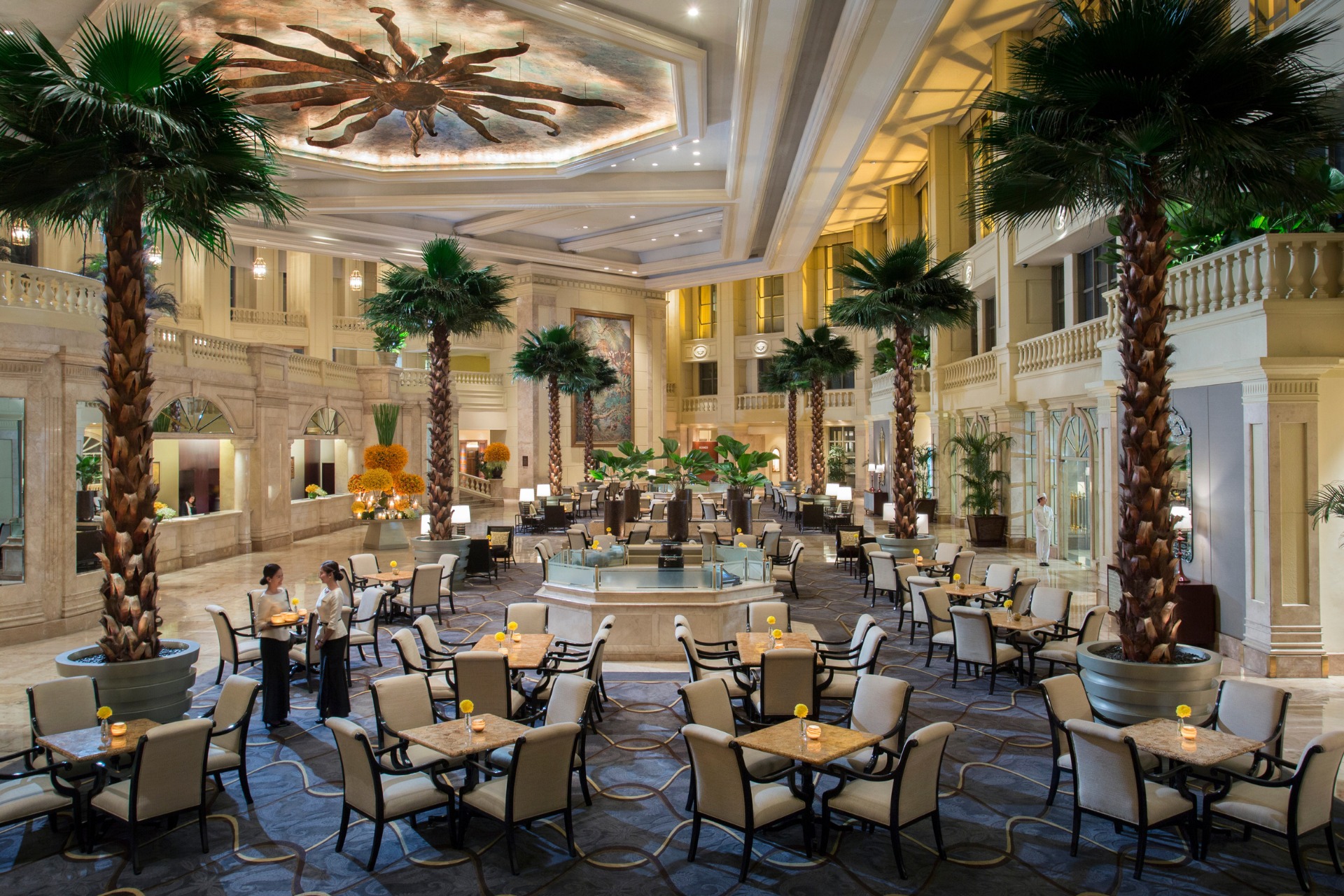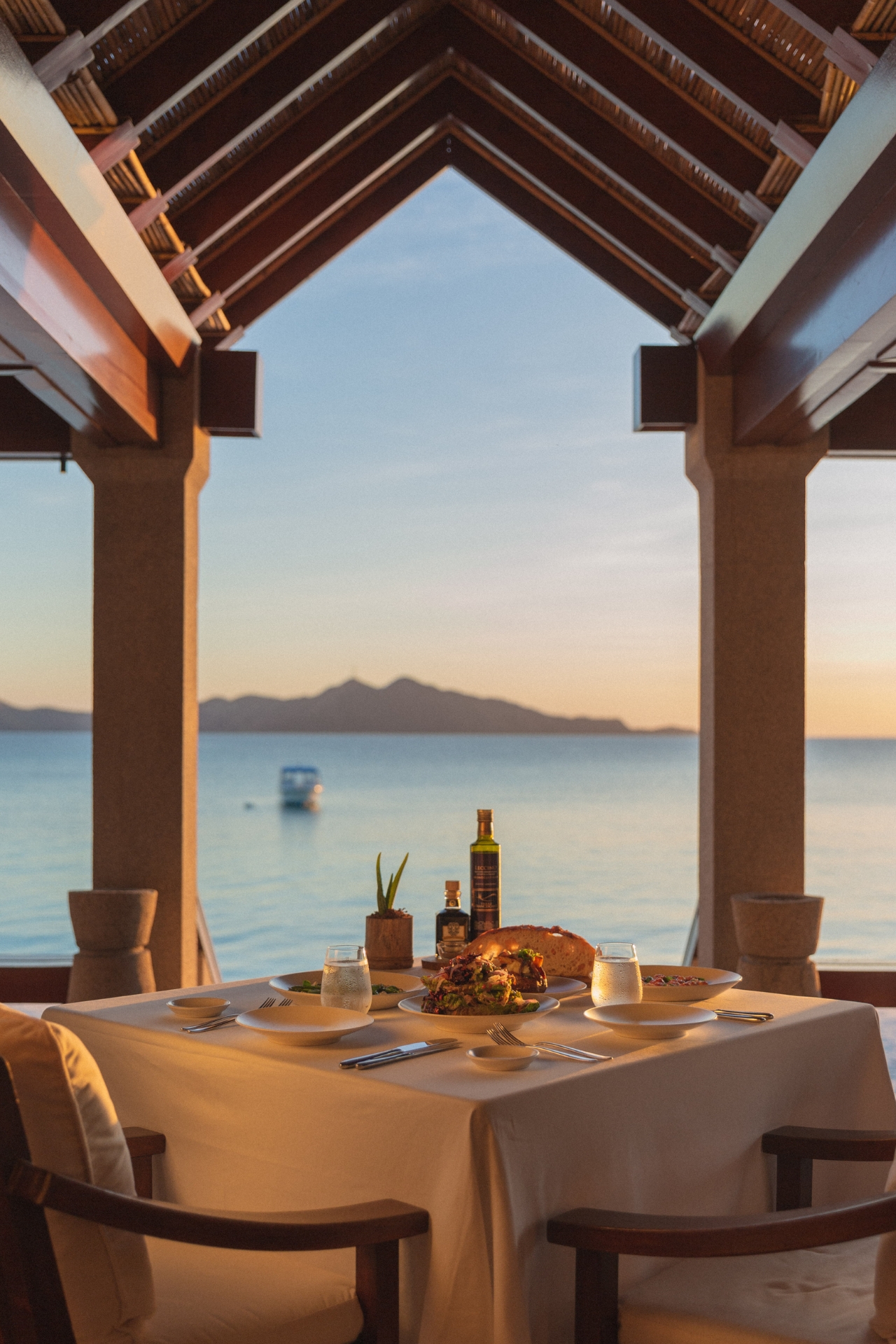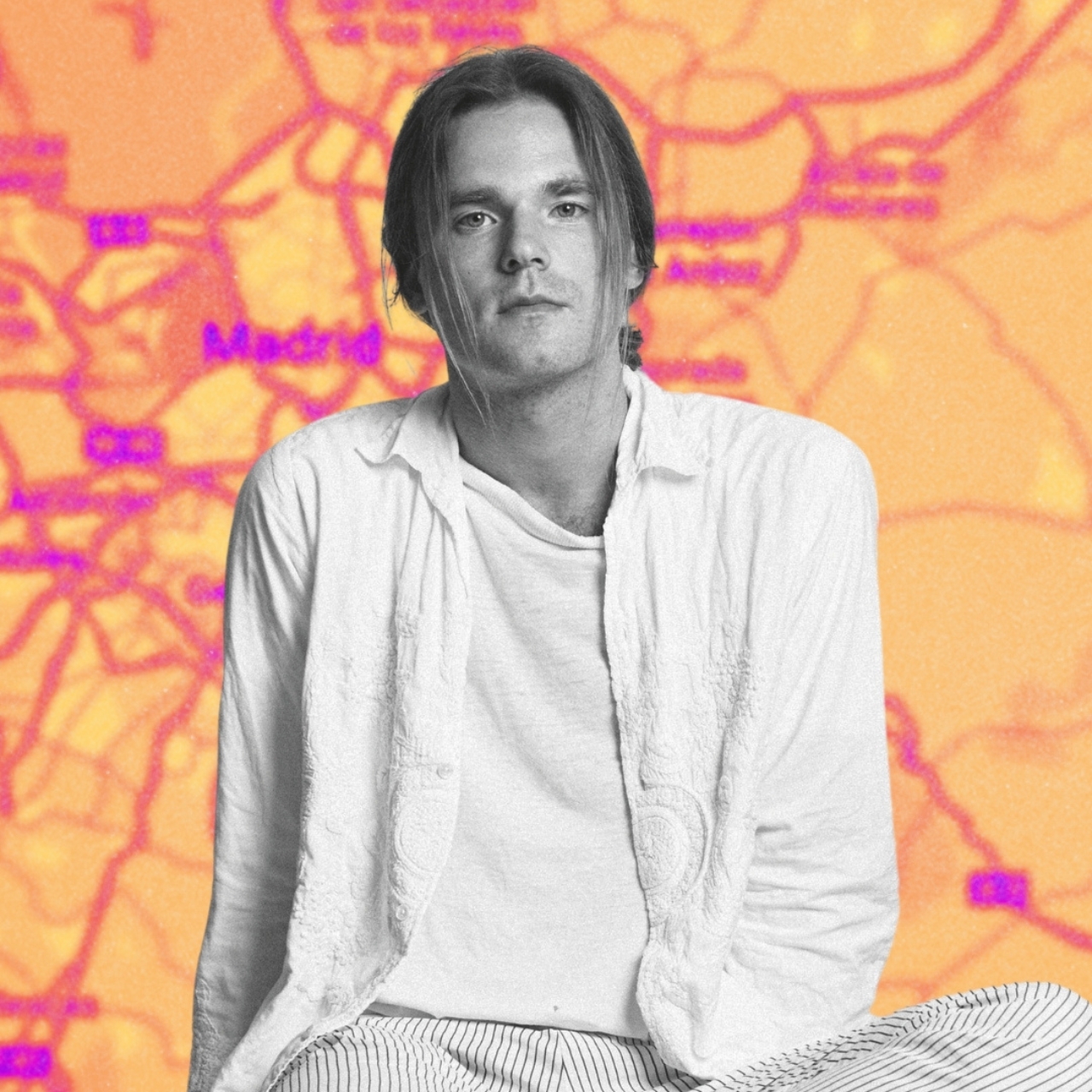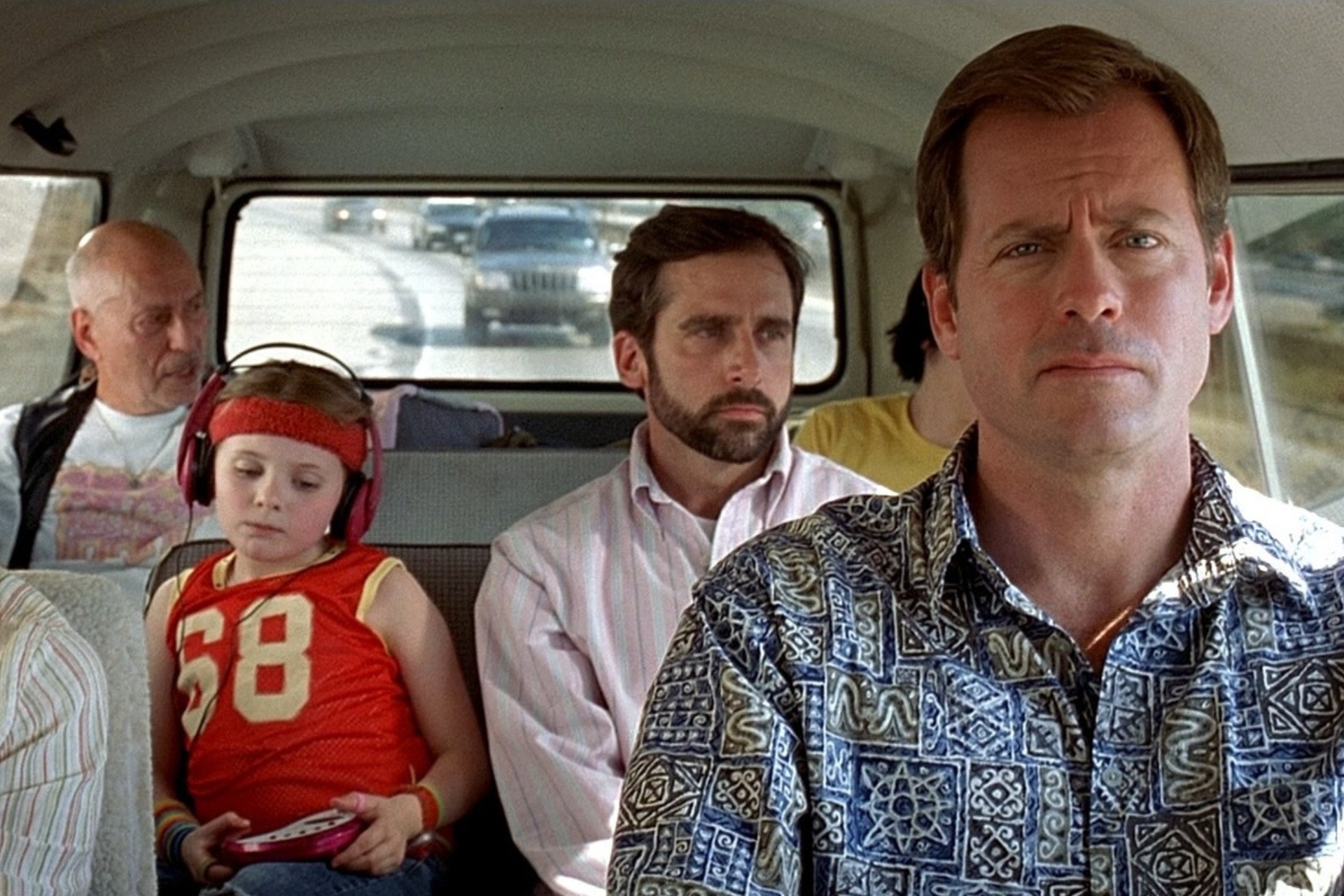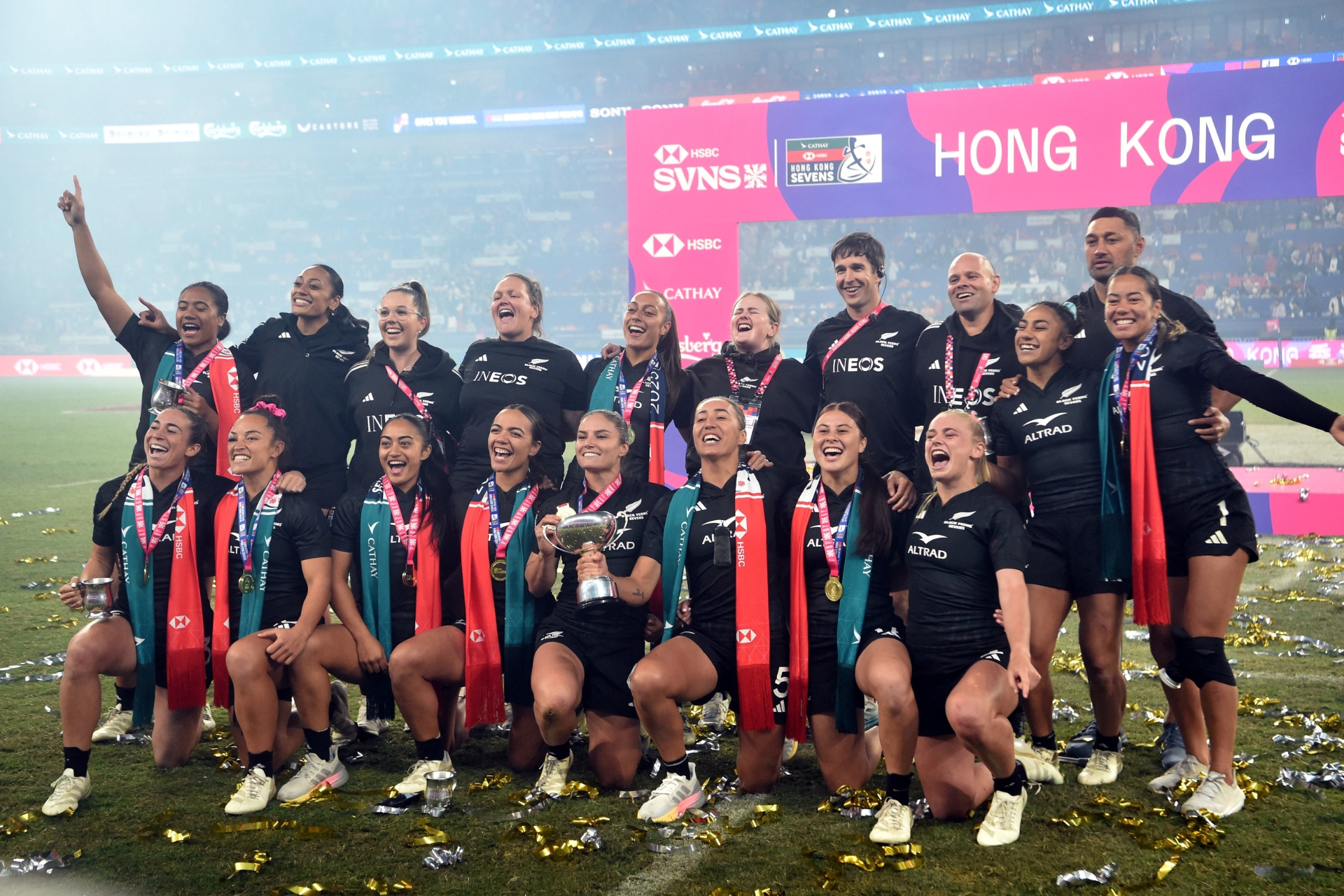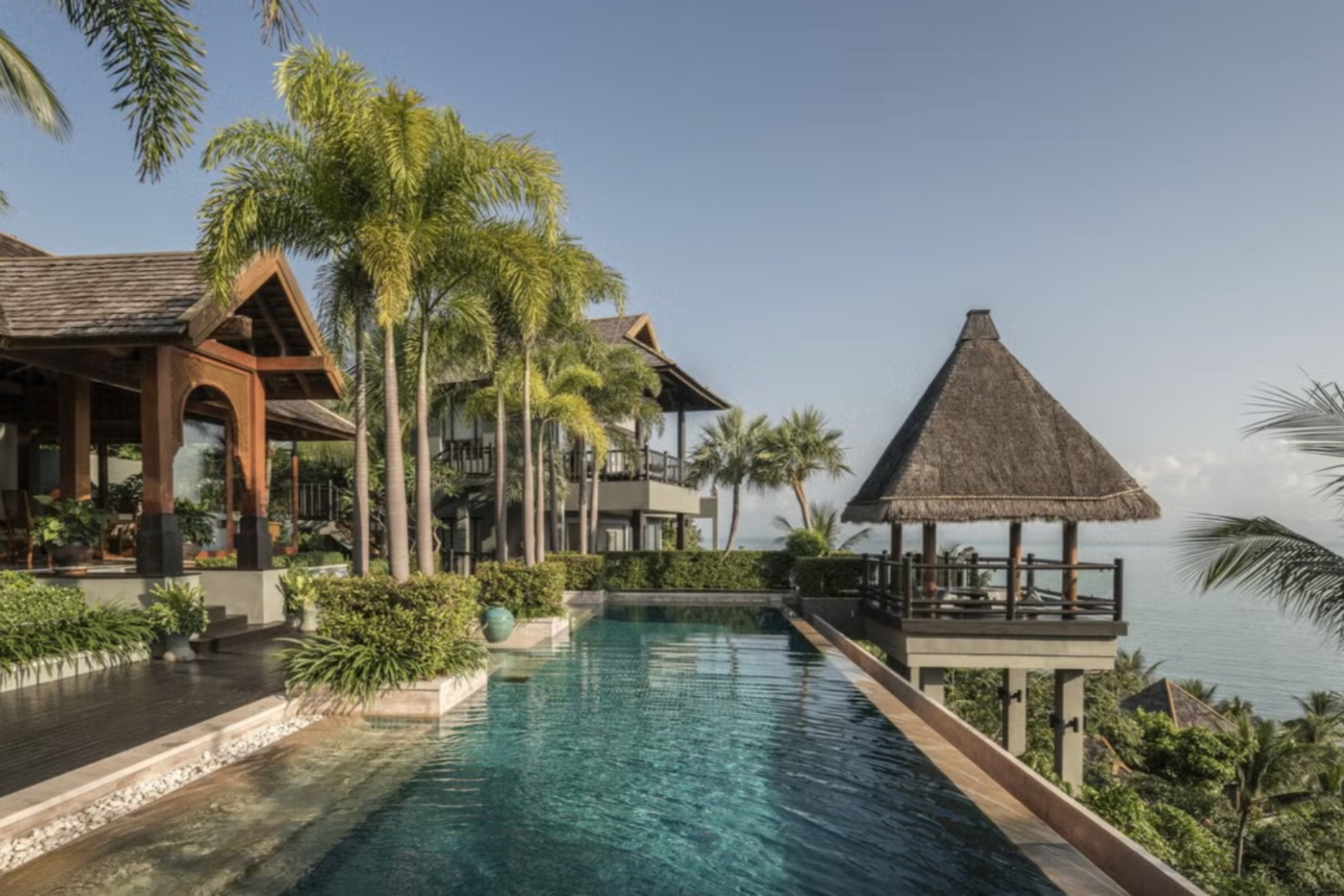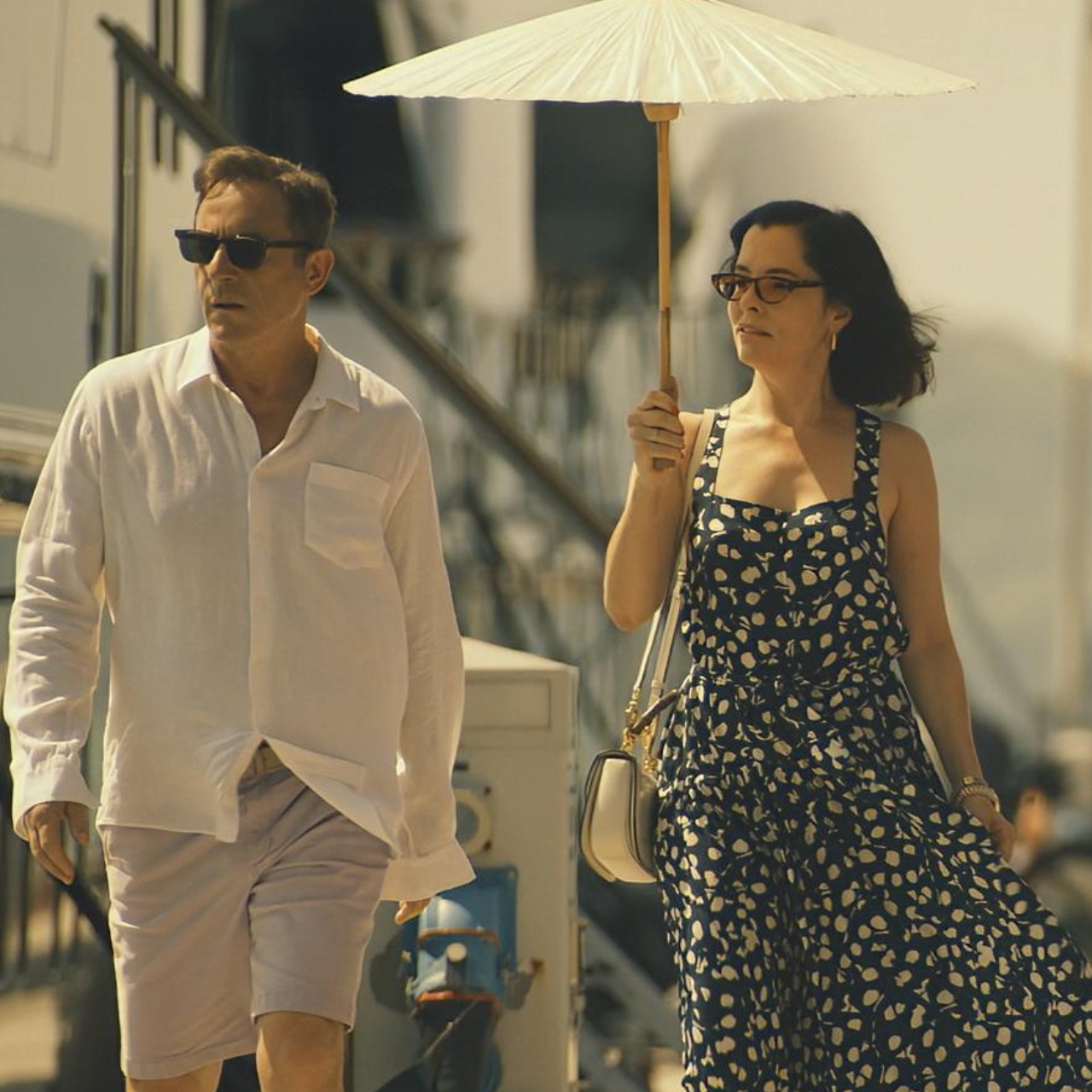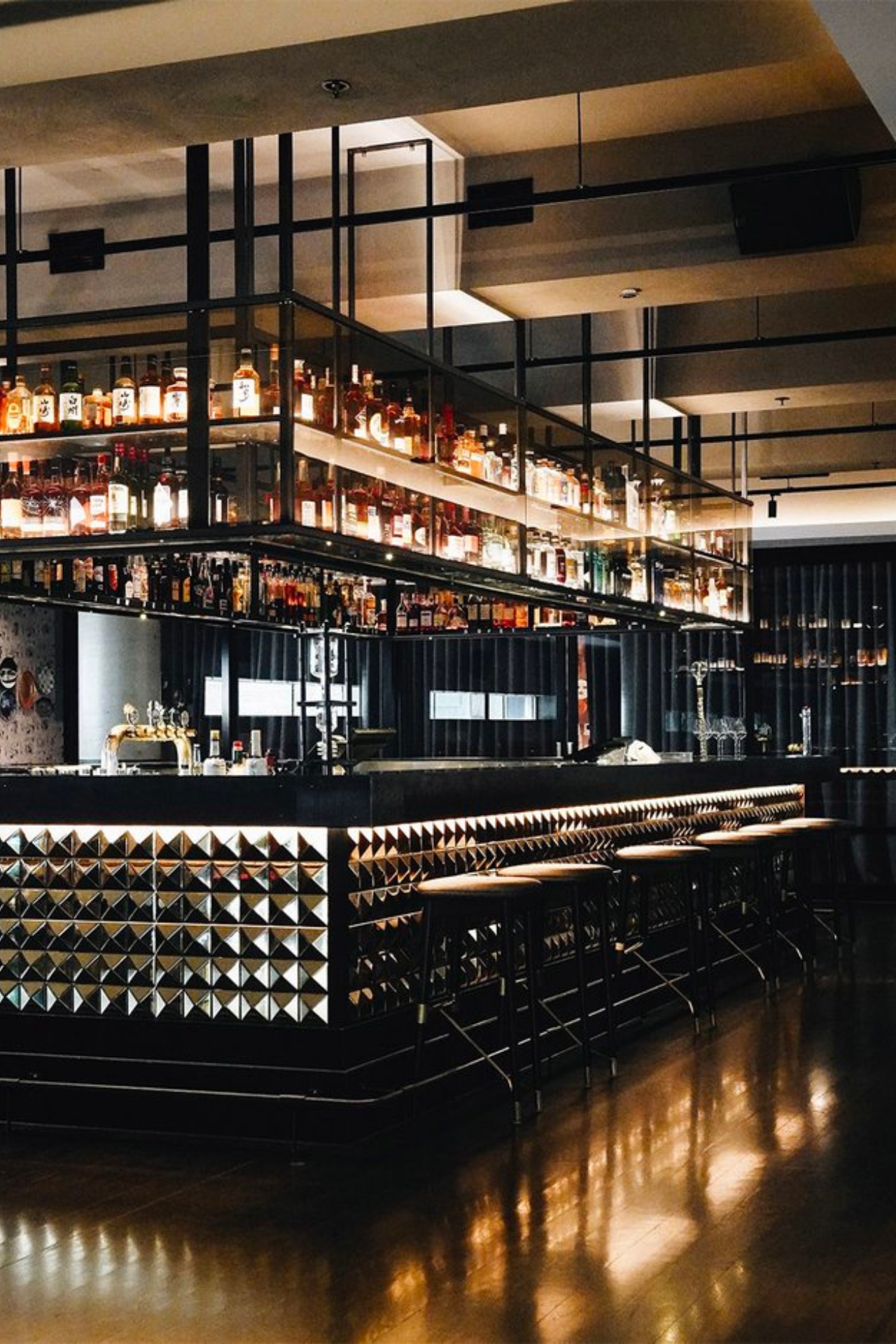The private Fiji island where you can live like a rock star
Even a short stay at Turtle Island Resort Fiji can be enough to persuade the most unassuming man that he’s someone special
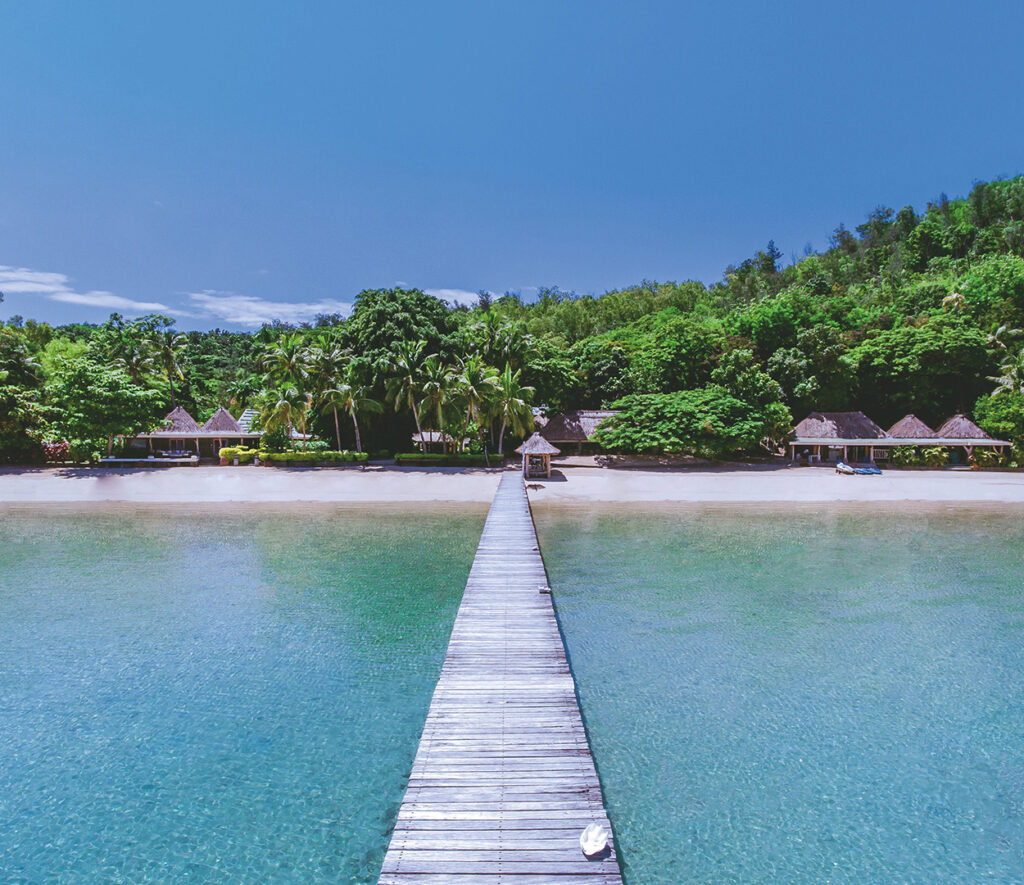
UNFORTUNATELY, IT TAKES A TONNE OF TALENT, determination and the gift of gorgeousness to reach the dizzy highpoint of life where you are allowed, nay encouraged, to engage in rock-star behaviour.
Or, if you’re willing to drop $30,000 plus on a week’s holiday, you can take the rock-star lifestyle for a wild ride, without even having to squeeze into leather pants, support a drug habit or endure a single selfie with an overwrought fan.
Personally, I feel my inner rock star rising as I strut along a private beach, my trophy wife framed by the same pearly white sand and perfectly positioned palm trees that had helped Brooke Shields look so disturbingly devastating in the 1980 film The Blue Lagoon in my youth (she was only 15 at the time) to our dining hut to crack another icy Corona. More on that film later.
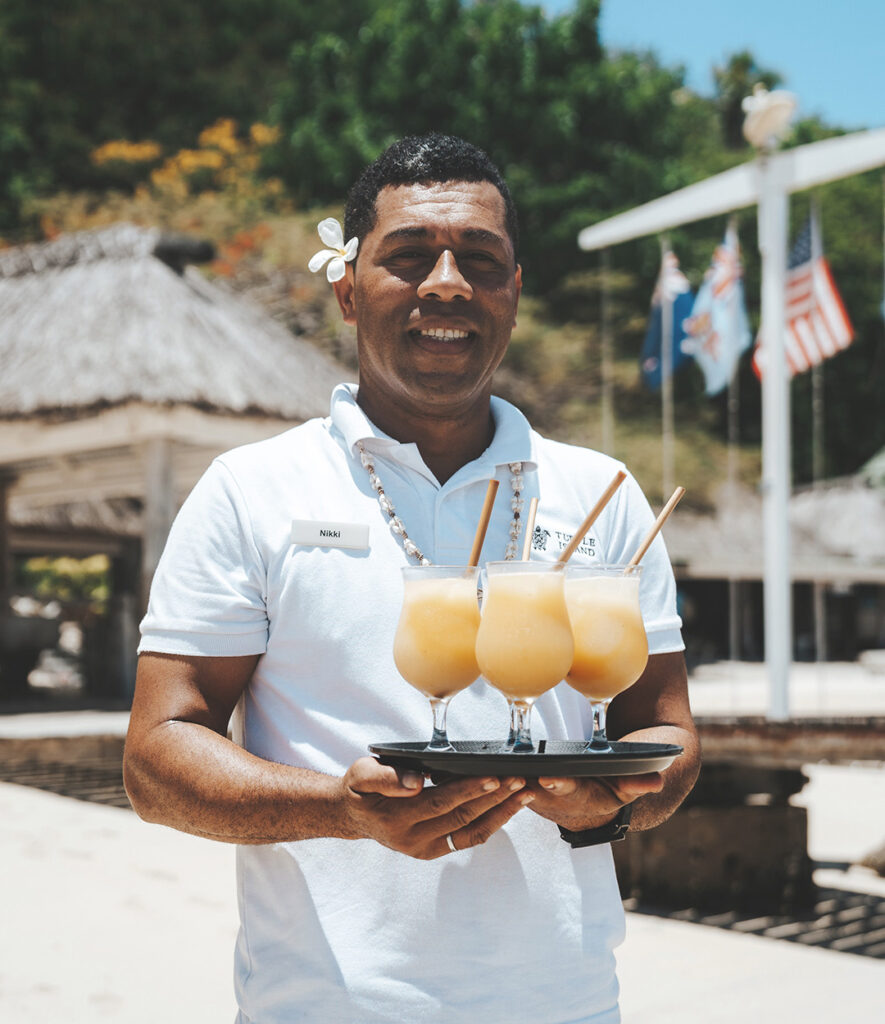
To my horror, the Esky I’d been dropped off with that morning is empty and even though we are due to be picked up by our private boat in half an hour, I find this unacceptable, which launches a pointed argument between trophy wife and me over whether it’s appropriate for me to use the provided walkie-talkie to demand more beers be delivered, pronto.
Five minutes later, as two beaming Fijian staff beach their boat beside us and hand over a champagne bucket filled with icy sustenance, I feel like I have hit peak Rock God (my wife’s word for this is, sadly, “wanker”).
But that’s the thing about Turtle Island – a perfectly terraformed platter of paradise created by one man, with a little help from Hollywood: when you are being feted, fed and fussed over by so many people who genuinely seem to love you (at most, this stratospherically high-end couples-only resort can host 28 people, but it takes 95 staff to predict and fulfil their every need), it’s hard not to feel like you’re of the moment.
And to be honest, rock star is a slight downgrade from how we’d felt on our first few fantastical days on the island – which was more like royalty. As my befuddled yet thrilled wife was lifted from our seaplane and carried by two grinning, grass-skirted warriors to the shore, like a princess, I was engulfed in outpourings of song and shining smiles from more than a dozen irrepressible Fijians, all shouting “Welcome home” and hugging me (had I been here before, had I died and this was Heaven – the spectacular setting surely did have that look about it – was I a god?).
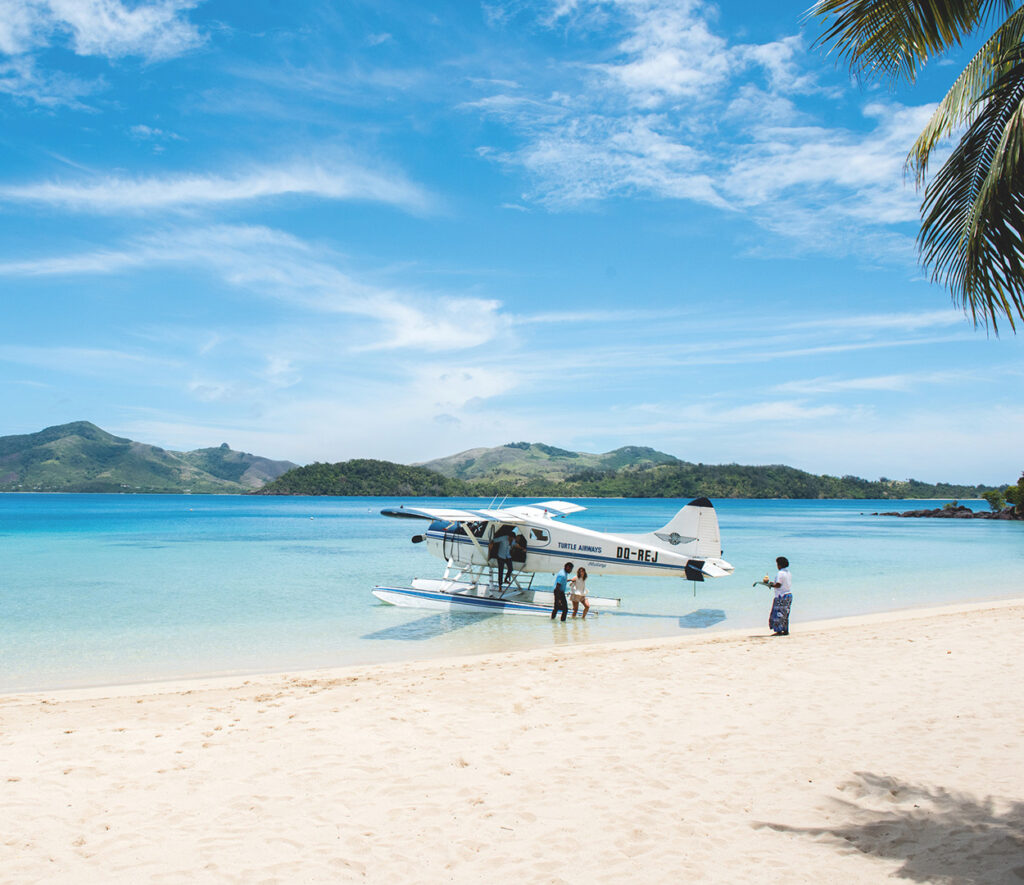
After dining on the first of many local lobsters that would lay down its life for me that week (it’s possible here to chomp the crustaceans three times a day, or more if you’re greedy), bathed in a delicious creamy lime pasta, we were escorted to our room by our assigned Bure Mama, who would basically organise our lives in a manner designed to maximise memories and jolt us with joy on a daily basis.
Mama, who simply refused to take “No, I can do it myself” for an answer, would also wash and iron our clothes, become intimate with our preferences, book in our boat trips to private beaches (there are eight on the island, available for a personalised picnic lunch each day) and suggest activities from the right royal range on offer – horse rides on the beach at dawn or sunset, deep-sea fishing, near-sea handline fishing, or choosing to feed fish rather than kill them, either while scuba diving or snorkelling in the Blue Lagoon (another filming location).
Which reminds me, many moons ago as a young boy, due to a fortunate error, I was dropped off to see a Disney movie, only to find myself in a cinema, horrified and thrilled all at once, watching The Blue Lagoon. Unlike its star, Brooke Shields, this movie has not aged well, and watching it on the island, where they still screen it every Sunday night to revere the legend of its filming here on Turtle Island, I was disturbed to discover that my sexual awakening had been triggered by a movie involving underage actors and an incest-heavy script that would never see a screen today.
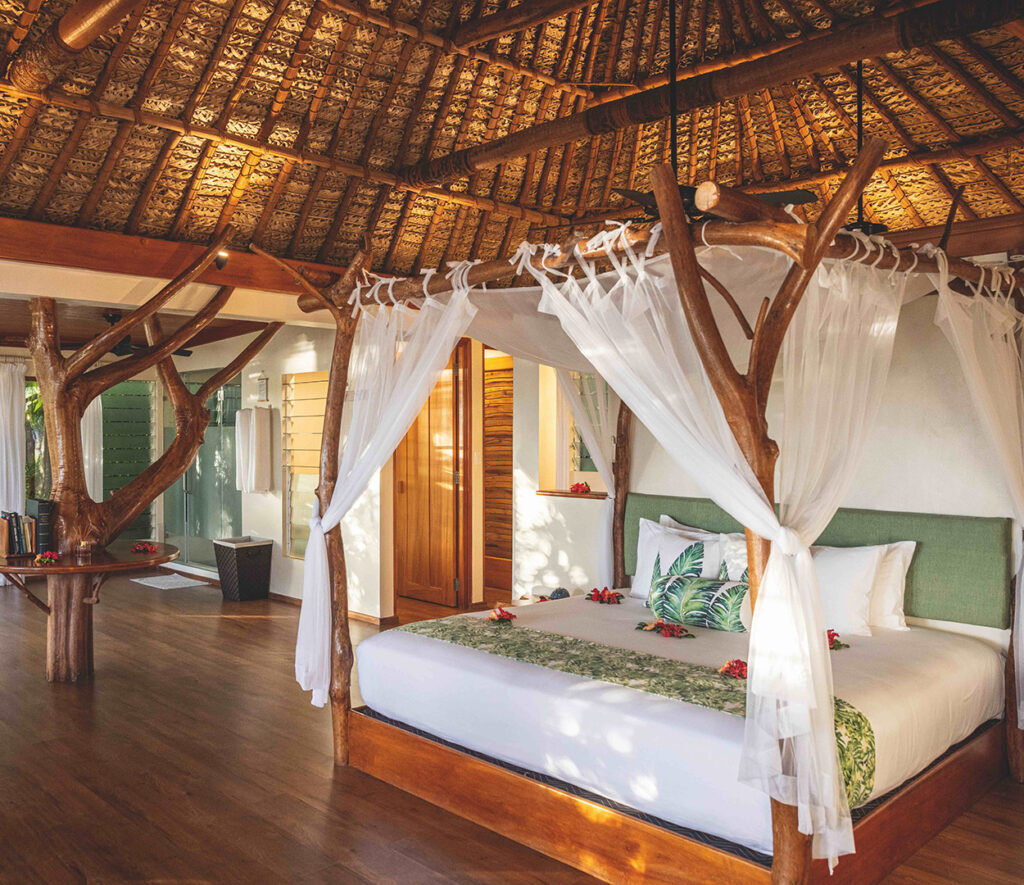
This digression leads me to the history of this place, at the top of Fiji’s Yasawa islands, and a US TV executive called Richard Evanson who, in 1972, allegedly woke up in Fiji after a night of rock-star-level drinking to discover he’d bought a barren 200-hectare island. His planned life of seclusion there became a passion project as he and some locals planted more than 500,000 trees and even dug a dam and formed a small mountain (where he’s now buried) with the dirt.
When Columbia Pictures came calling, in 1979, with a plan to film there he was initially ambivalent but eventually agreed to host them by building some wooden huts, or bures, and a resort was, almost accidentally, born.
Turtle has been hosting paying guests since 1980 and, over the years, has refined and perhaps even perfected the art of impressing the kind of people who live large lives, holiday with largesse and have seen and done it all.
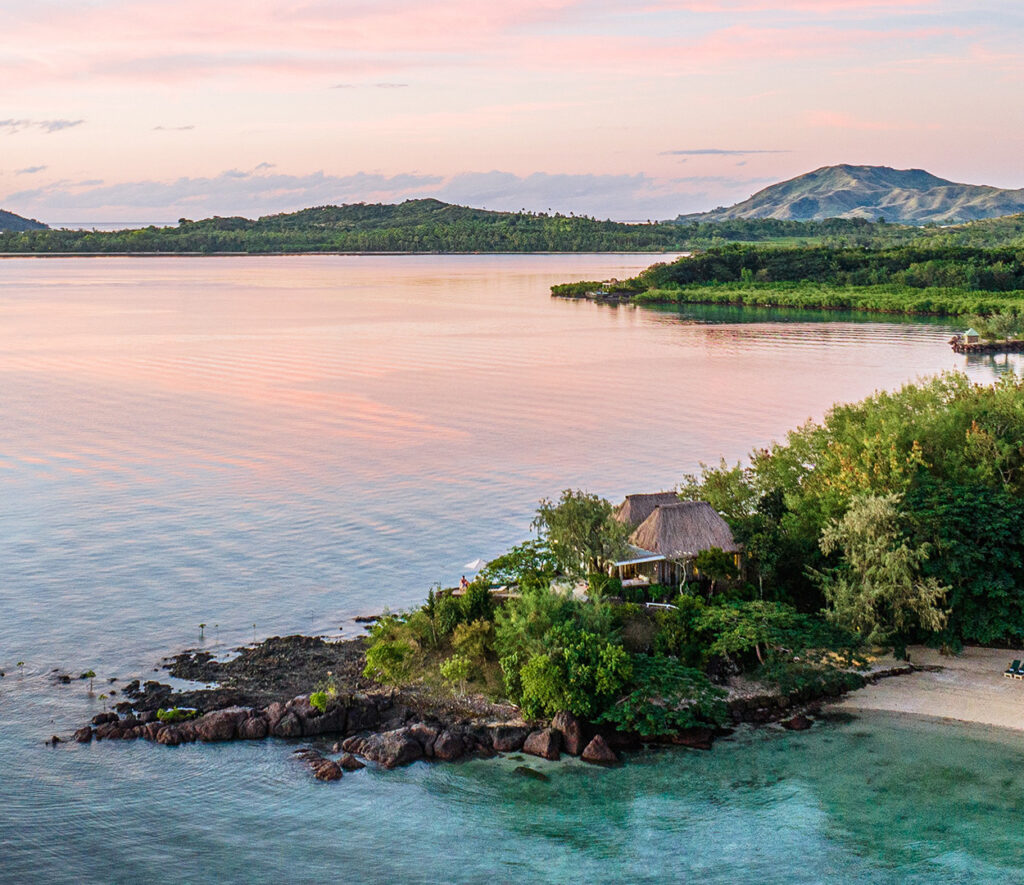
And yet, with the world at their well-heeled feet, they keep coming back here – more than 60 per cent of people on the island at any given time are repeat visitors, and in our week here we meet one couple who had been just six months before and another who couldn’t remember whether it was their seventh or eighth stay. (I also meet one lovely Californian whom I’m convinced is a rock star, but he informs me that he’d given up touring the world with a band years ago to work in Hollywood on some huge TV shows.)
And no matter how many times people have been plushed by the luxe living on the Island – the bures are beyond belief, with separate his and hers toilets for goodness sake, and in-room jacuzzis – when it comes time to leave they are happy to stand up and speak with passion about their love for the place, and most of all for the people, the incredible, indelible staff, from their Bure Mamas to the nine people tasked with growing fresh food in the gardens. (Almost every night, through some kind of effortless encouragement magic, the locals sit down and drink the local “kava” beverage with the guests, forming a bond that breaks the sense of master/servant.)
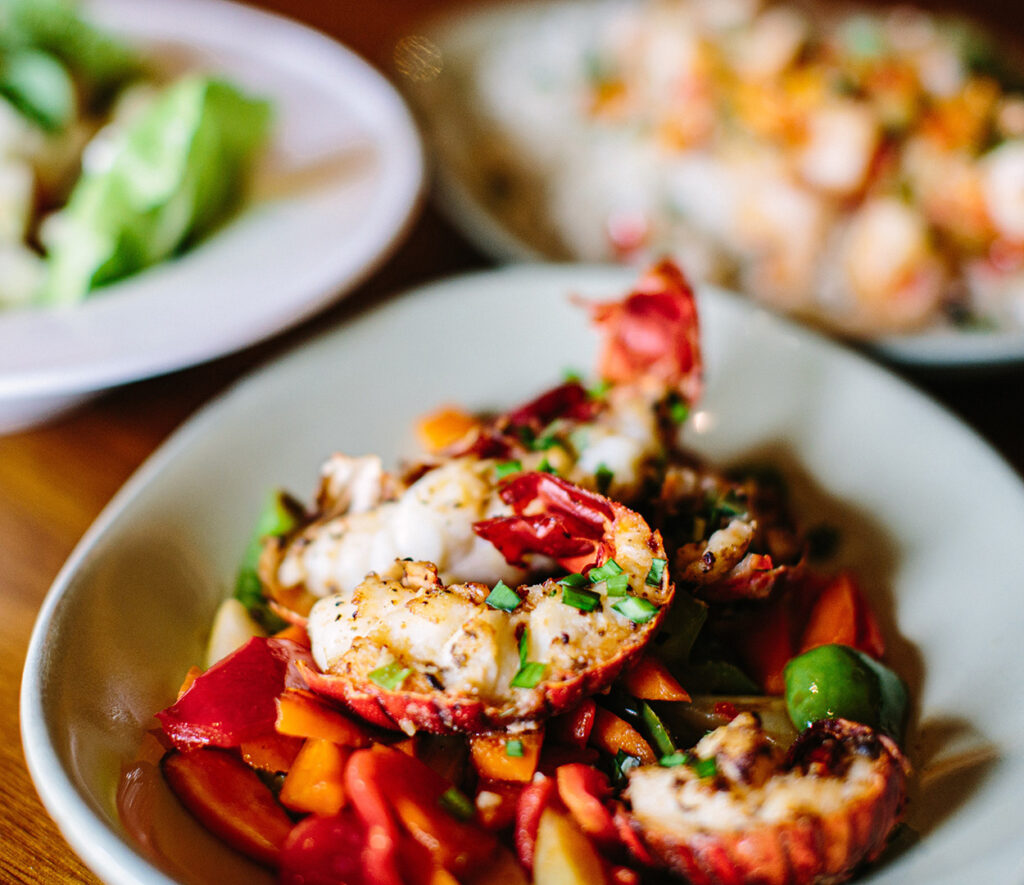
And as they are sung off the island with hymns and hugs, a lot of guests burst into tears – and not just because they will no longer get to eat the food (cooked by incredible local chefs, the menu is created and monitored by the world-renowned Jacques Reymond) or quaff the contents of their bottomless mini bars.
There is something about this heavenly haven and its hug-happy staff that gets not just under your skin but into the very ventricles of your heart. The company’s own motto nails it: “Turtle Island, once discovered, never forgotten”.
Minimum five-night stay. See turtlefiji.com
Related:
Where to get authentic Spanish food in Madrid with Edward Cuming












